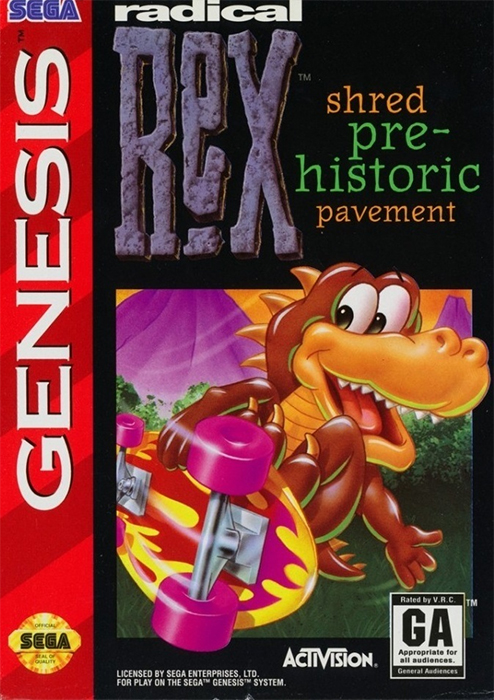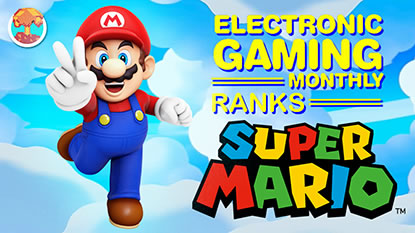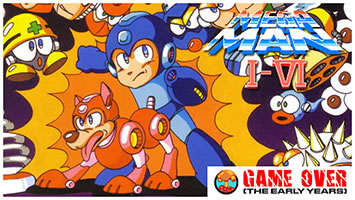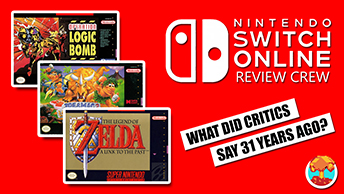- CLASSIC MAGAZINES
- REVIEW CREW
A show recapping what critics thought back
when classic games first came out! - NEXT GENERATION'S BEST & WORST
From the worst 1-star reviews to the best
5-stars can offer, this is Next Generation! - NINTENDO POWER (ARCHIVE)
Experience a variety of shows looking at the
often baffling history of Nintendo Power! - MAGAZINE RETROSPECTIVE
We're looking at the absolutely true history of
some of the most iconic game magazines ever! - SUPER PLAY'S TOP 600
The longest and most ambitious Super NES
countdown on the internet! - THEY SAID WHAT?
Debunking predictions and gossip found
in classic video game magazines! - NEXT GENERATION UNCOVERED
Cyril is back in this spin-off series, featuring the
cover critic review the art of Next Generation! - HARDCORE GAMER MAGAZING (PDF ISSUES)
Download all 36 issues of Hardcore Gamer
Magazine and relive the fun in PDF form!
- REVIEW CREW
- ELECTRONIC GAMING MONTHLY
- ELECTRONIC GAMING MONTHLY RANKS
From Mario to Sonic to Street Fighter, EGM
ranks classic game franchises and consoles! - ELECTRONIC GAMING MONTHLY BEST & WORST
Counting down EGM’s best and worst reviews
going year by year, from 1989 – 2009! - ELECTRONIC GAMING BEST & WORST AWARDS
11-part video series chronicling the ups and
downs of EGM’s Best & Worst Awards!
- ELECTRONIC GAMING MONTHLY RANKS
- GAME HISTORY
- GAME OVER: STORY BREAKDOWNS
Long-running series breaking down game
stories and analyzing their endings! - A BRIEF HISTORY OF GAMING w/ [NAME HERE]
Real history presented in a fun and pithy
format from a variety of game historians! - THE BLACK SHEEP
A series looking back at the black sheep
entries in popular game franchises! - INSTANT EXPERT
Everything you could possibly want to know
about a wide variety of gaming topics! - FREEZE FRAME
When something familiar happens in the games
industry, we're there to take a picture! - I'VE GOT YOUR NUMBER
Learn real video game history through a series
of number-themed episodes, starting at zero! - GREAT MOMENTS IN BAD ACTING
A joyous celebration of some of gaming's
absolute worst voice acting!
- GAME OVER: STORY BREAKDOWNS
- POPULAR SHOWS
- DG NEWS w/ LORNE RISELEY
Newsman Lorne Riseley hosts a regular
series looking at the hottest gaming news! - REVIEW REWIND
Cyril replays a game he reviewed 10+ years
ago to see if he got it right or wrong! - ON-RUNNING FEUDS
Defunct Games' longest-running show, with
editorials, observations and other fun oddities! - DEFUNCT GAMES QUIZ (ARCHIVE)
From online quizzes to game shows, we're
putting your video game knowledge to the test!- QUIZ: ONLINE PASS
Take a weekly quiz to see how well you know
the news and current gaming events! - QUIZ: KNOW THE GAME
One-on-one quiz show where contestants
find out if they actually know classic games! - QUIZ: THE LEADERBOARD
Can you guess the game based on the classic
review? Find out with The Leaderboard!
- QUIZ: ONLINE PASS
- DEFUNCT GAMES VS.
Cyril and the Defunct Games staff isn't afraid
to choose their favorite games and more! - CYRIL READS WORLDS OF POWER
Defunct Games recreates classic game
novelizations through the audio book format!
- DG NEWS w/ LORNE RISELEY
- COMEDY
- GAME EXPECTANCY
How long will your favorite hero live? We crunch
the numbers in this series about dying! - VIDEO GAME ADVICE
Famous game characters answer real personal
advice questions with a humorous slant! - FAKE GAMES: GUERILLA SCRAPBOOK
A long-running series about fake games and
the people who love them (covers included)! - WORST GAME EVER
A contest that attempts to create the worst
video game ever made, complete with covers! - LEVEL 1 STORIES
Literature based on the first stages of some
of your favorite classic video games! - THE COVER CRITIC
One of Defunct Games' earliest shows, Cover
Critic digs up some of the worst box art ever! - COMMERCIAL BREAK
Take a trip through some of the best and
worst video game advertisements of all time! - COMIC BOOK MODS
You've never seen comics like this before.
A curious mix of rewritten video game comics!
- GAME EXPECTANCY
- SERIES ARCHIVE
- NINTENDO SWITCH ONLINE ARCHIVE
A regularly-updated list of every Nintendo
Switch Online release, plus links to review! - PLAYSTATION PLUS CLASSIC ARCHIVE
A comprehensive list of every PlayStation
Plus classic release, including links! - RETRO-BIT PUBLISHING ARCHIVE
A regularly-updated list of every Retro-Bit
game released! - REVIEW MARATHONS w/ ADAM WALLACE
Join critic Adam Wallace as he takes us on a
classic review marathon with different themes!- DEFUNCT GAMES GOLF CLUB
Adam Wallace takes to the links to slice his way
through 72 classic golf game reviews! - 007 IN PIXELS
Adam Wallace takes on the world's greatest spy
as he reviews 15 weeks of James Bond games! - A SALUTE TO VAMPIRES
Adam Wallace is sinking his teeth into a series
covering Castlevania, BloodRayne and more! - CAPCOM'S CURSE
Adam Wallace is celebrating 13 days of Halloween
with a line-up of Capcom's scariest games! - THE FALL OF SUPERMAN
Adam Wallace is a man of steel for playing
some of the absolute worst Superman games! - THE 31 GAMES OF HALLOWEEN
Adam Wallace spends every day of October afraid
as he reviews some of the scariest games ever! - 12 WEEKS OF STAR TREK
Adam Wallace boldly goes where no critic has
gone before in this Star Trek marathon!
- DEFUNCT GAMES GOLF CLUB
- DAYS OF CHRISTMAS (ARCHIVE)
Annual holiday series with themed-episodes
that date all the way back to 2001!- 2015: 30 Ridiculous Retro Rumors
- 2014: 29 Magazines of Christmas
- 2013: 29 Questionable Power-Ups of Christmas
- 2012: 34 Theme Songs of Christmas
- 2011: 32 Game Endings of Christmas
- 2010: 31 Bonus Levels of Christmas
- 2009: 30 Genres of Christmas
- 2008: 29 Controls of Christmas
- 2007: 34 Cliches of Christmas
- 2006: 33 Consoles of Christmas
- 2005: 32 Articles of Christmas
- 2004: 31 Websites of Christmas
- 2003: 29 Issues of Christmas
- 2002: 28 Years of Christmas
- 2001: 33 Days of Christmas
- NINTENDO SWITCH ONLINE ARCHIVE
- REVIEW ARCHIVE
- FULL ARCHIVE
QuByte Classics: 1990s Critics Review Radical Rex & Thunderbolt Collection
While you were busy celebrating that Mario Party and GoldenEye 007 will finally be coming to Nintendo Switch Online, our friends over at QuByte have quietly been releasing their own line of retro game compilations. Their newest titles include both the Thunderbolt Collection and the Radical Rex Collection, two very different types of games that epitomize what we loved about the 1990s. It's great that these titles are seeing a second life on modern consoles, but the question remains: Are these games actually worth playing in 2022? To answer that question, I decided to flip through the pages of Electronic Gaming Monthly, Next Generation, Mean Machines Sega and more classic magazines to see what the critics said when these games first came out. We're checking in with the 1990s critics for another exciting episode of QuByte Classics Review Crew.
You might not know the name Beam Software, but if you were playing games back in the 1980s and 90s, you definitely know their handiwork. They were the developers responsible for dubious console games based on popular licenses like Back to the Future, Terminator 2, Star Wars, Itchy and Scratchy, The Hunt for Red October and The Punisher. That's not a great list, but Beam wasn't all bad. Those awful licensed games helped to fund original projects like Nightshade and even a few critically-acclaimed titles, such as the Super NES version of Shadowrun. Radical Rex was one of their original titles, giving gamers of all ages a brand-new prehistoric hero with all of the attitude and coolness that you expect from a 16-bit mascot character. Now, thanks to QuByte, both the console version and the handheld port of Radical Rex are back in a just-released compilation for modern consoles.
If you watched our series looking at Next Generation's One-Star Reviews, then you've probably already braced for the worst. After all, they called it a Joe & Mac clone that was “consistently flat, unmotivating, and not up to par with other platform games.” They concluded that “you've seen it before, usually better.”
Yes, that one-star review was harsh, but don't take that to mean that everybody hated Radical Rex. Looking back at the reviews, I found that critics were a lot more mixed than what Next Generation's review would suggest. For example, Electronic Gaming Monthly's review crew gave the game a whole bunch of fives and sixes. “Not quite radical enough for me,” explains Mike. “Radical Rex has a number of good points, like very cute graphics and animation, but the controls could use some work. This game will probably appeal more to younger gamers with its cutesy theme, otherwise, it's more your run-and-smack-enemies-away type action game.”
You saw a lot of these middling scores connected to Radical Rex when it first came out. Sega Visions gave it a 3 out of 5, Nintendo Power went a little higher with a 3.1 out of 5, and GamePro went as high as a 3.5 out 5. In case you're wondering, the highest marks came from Mean Machines Sega, but don't take their 78% as a recommendation. “If dinosaurs were as dull as Radical Rex, then they deserve to die out if you ask me. With very little to differentiate it from the countless other platformers, Rex looks extremely tired and lacks the injection of humor or originality that makes the likes of Earthworm Jim and Pitfall so innovative and playable. Radical Rex is destined for extinction, methinks.”
Overall, the critics felt that it fell way short of the mascot games of the era, but pretty much everybody liked it significantly more than Next Generation.
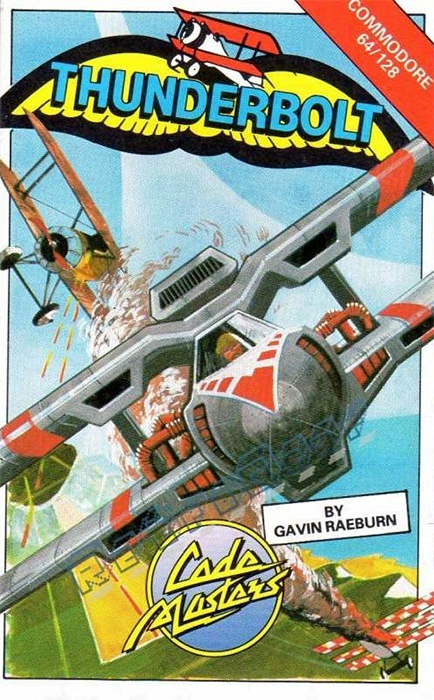
| Publication | Scores |
|---|---|
| GamePro | 3.5/5 |
| Electronic Gaming Monthly | 5.6/10 |
| Mean Machines Sega | 78% |
| Sega Visions | 3/5 |
| Next Generation | 1/5 |
| Nintendo Power | 3.1/5 |
If you watched our series looking at Next Generation's One-Star Reviews, then you've probably already braced for the worst. After all, they called it a Joe & Mac clone that was “consistently flat, unmotivating, and not up to par with other platform games.” They concluded that “you've seen it before, usually better.”
Yes, that one-star review was harsh, but don't take that to mean that everybody hated Radical Rex. Looking back at the reviews, I found that critics were a lot more mixed than what Next Generation's review would suggest. For example, Electronic Gaming Monthly's review crew gave the game a whole bunch of fives and sixes. “Not quite radical enough for me,” explains Mike. “Radical Rex has a number of good points, like very cute graphics and animation, but the controls could use some work. This game will probably appeal more to younger gamers with its cutesy theme, otherwise, it's more your run-and-smack-enemies-away type action game.”
You saw a lot of these middling scores connected to Radical Rex when it first came out. Sega Visions gave it a 3 out of 5, Nintendo Power went a little higher with a 3.1 out of 5, and GamePro went as high as a 3.5 out 5. In case you're wondering, the highest marks came from Mean Machines Sega, but don't take their 78% as a recommendation. “If dinosaurs were as dull as Radical Rex, then they deserve to die out if you ask me. With very little to differentiate it from the countless other platformers, Rex looks extremely tired and lacks the injection of humor or originality that makes the likes of Earthworm Jim and Pitfall so innovative and playable. Radical Rex is destined for extinction, methinks.”
Overall, the critics felt that it fell way short of the mascot games of the era, but pretty much everybody liked it significantly more than Next Generation.

Thunderbolt Collection (Various)
Beyond reviving Radical Rex, QuByte also released the Thunderbolt Collection, a compilation featuring two slightly different overhead shoot ‘em ups that were originally released in the mid-1990s. Now, before you ask, no, this has nothing to do with Operation Thunderbolt by Taito. It's also completely unrelated to the Thunderbolt games on both the MSX and Commodore 64, as well as A-10 Thunderbolt on the ZX Spectrum. In fact, I'm going to go out on a limb and say that you've probably never even heard of these games, as they were released exclusively in Taiwan.
This package features both the 8-bit and 16-bit versions of the game, which were developed by Gamtec Corp., a company best-known for releasing unlicensed Genesis and Nintendo Entertainment System cartridges. What we get are two reasonably fun shooters, neither of which are all that exciting or especially innovative. The 8-bit version is slow with generic enemies and way too many power-ups, while the 16-bit version is definitely an improvement, but still only average, at best. Both games suffer from weird frame rate problems that make swarms of enemies look like they are teleporting across the screen. This really plays with your eyes, especially when paired with some of the more complicated backgrounds.
Seeing as these games are only now coming to America, it probably won't be much of a shock when I tell you that there are no magazine reviews. I mean, there are plenty of reviews of Operation Thunderbolt, but nothing for either of these two shoot ‘em ups. We'll never know what EGM or GamePro would have said, but I have a hunch these Thunderbolt games would have ranked way below the classics of that era. It's cool that we're getting these rarely seen shooters, but the Thunderbolt Collection is far from a must-own compilation.
HOME |
CONTACT |
NOW HIRING |
WHAT IS DEFUNCT GAMES? |
NINTENDO SWITCH ONLINE |
RETRO-BIT PUBLISHING
Retro-Bit |
Switch Planet |
The Halcyon Show |
Same Name, Different Game |
Dragnix |
Press the Buttons
Game Zone Online | Hardcore Gamer | The Dreamcast Junkyard | Video Game Blogger
Dr Strife | Games For Lunch | Mondo Cool Cast | Boxed Pixels | Sega CD Universe | Gaming Trend
Game Zone Online | Hardcore Gamer | The Dreamcast Junkyard | Video Game Blogger
Dr Strife | Games For Lunch | Mondo Cool Cast | Boxed Pixels | Sega CD Universe | Gaming Trend
Copyright © 2001-2025 Defunct Games
All rights reserved. All trademarks are properties of their respective owners.
All rights reserved. All trademarks are properties of their respective owners.







